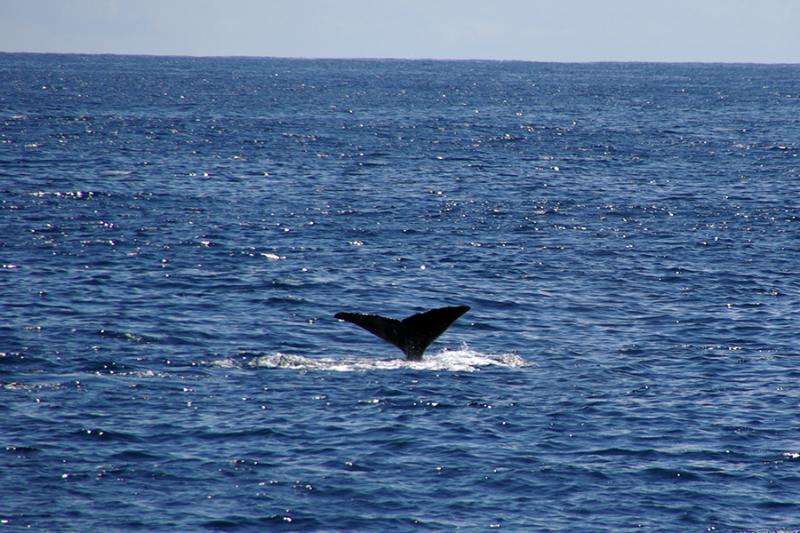Well-travelled plankton could ride out global warming

Plankton have evolved to survive a wide range of conditions, thanks to their unexpectedly vast ocean travels, a new study suggests.
These microscopic organisms support the marine food web, providing food for whales, fish and crustaceans. Scientists from UTS and Imperial College London in the UK have been modelling how plankton drift with ocean currents to understand whether they are threatened by ocean warming.
The results of the study, published in the journal Proceedings of the National Academy of Science (PNAS), show for the first time the range of temperatures that plankton travel through. In most locations, they endure temperature extremes that go beyond what is predicted by models of global warming.
The scientists used a computer model of global ocean circulation to simulate the journeys taken by three million virtual plankton, and the thermal conditions they experience.
They found that ocean surface currents can transport drifting particles up to 3,500 kilometres in 500 days, which is about the equivalent of a person rowing from California to Hawaii. During this journey they are subjected to temperature changes of up to 10 degrees Celsius more than if they stayed in one location.
"Previous exposure to fluctuating temperature can influence how planktonic populations fare under future temperature changes," said lead author, Associate Professor Martina Doblin, who heads the Productive Coasts research program in the UTS Climate Change Cluster (C3). "Our results suggest that the effects of climate change on ocean plankton will need to be re-evaluated to take this into account."
"There has been much recent interest in the future of coral reefs, because of their role in supporting biodiversity. But drifting plankton, that are invisible to the naked eye, are responsible for half the Earth's oxygen and for global fisheries yields, and are therefore important in providing other essential ecosystem services," Associate Professor Doblin said.
Waters in the Southern Indian Ocean, for example, had a seasonal temperature range of 13 to 18 degrees, whereas the study showed plankton that travelled through those waters had experienced temperatures as low as 5 degrees and as high as 20 degrees. Climate change models suggest that ocean temperatures are only likely to warm up to a few degrees in the next century in the Southern Indian Ocean.
Co-author Dr Erik van Sebille from the Grantham Institute - Climate Change and the Environment at Imperial College London said, "Until now, it has not been possible to understand how plankton will experience climate change, because they move at the mercy of ocean currents."
"Now we have modelled this ocean drift on a global scale, it will be possible to get a much better handle on how these tiny critters must have evolved to cope with temperature changes," he said.
Next month Associate Professor Doblin will board Australia's oceanographic research vessel, the RV Investigator, and collect plankton from a range of warm and cool ocean environments.
With these experiments she expects to further explore the capacity of plankton to withstand temperature variations. "We can now go out and test the accuracy of our model predictions, an exciting next step," she said.
More information: Martina A. Doblin et al. Drift in ocean currents impacts intergenerational microbial exposure to temperature, Proceedings of the National Academy of Sciences (2016). DOI: 10.1073/pnas.1521093113
Journal information: Proceedings of the National Academy of Sciences
Provided by University of Technology, Sydney



















